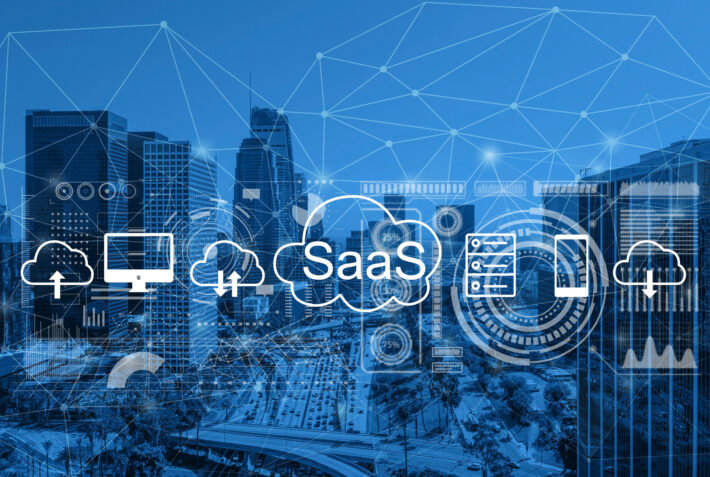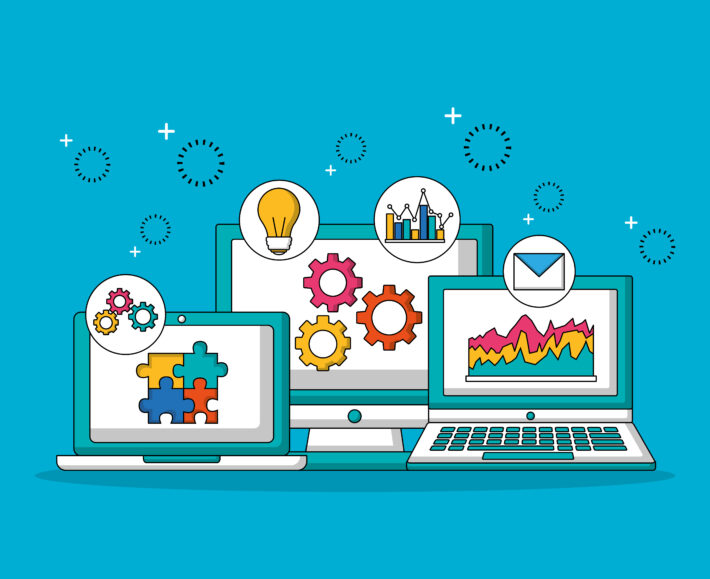Top 10 B2B Software Buyer Behavior Trends for 2024

As businesses continue to embrace digital transformation, the B2B software market is witnessing significant shifts in buyer behavior. In 2024, these trends are expected to shape the way organizations evaluate, purchase, and implement software solutions. From increased technology investment to the integration of AI-powered functionalities, buyers are seeking innovative solutions that drive efficiency, security, and growth.
Understanding these trends is crucial for software providers to stay ahead of the curve and meet the evolving needs of their customers.
Increased Technology Investment:
- With 61% of businesses planning to increase technology investment in 2024, there is a growing belief that software can be a catalyst for growth and competitive advantage. This trend signals a willingness to allocate resources towards digital transformation initiatives and advanced software solutions.
- As businesses navigate the ever-changing technological landscape, they recognize the importance of staying ahead of the curve. Investing in cutting-edge software solutions can unlock new opportunities, streamline operations, and provide a competitive edge in their respective markets.
AI-Powered Software:
- Artificial Intelligence (AI) is no longer a futuristic concept, but a reality that businesses are actively embracing. A staggering 92% of businesses are considering AI-powered software in 2024, recognizing the potential for enhanced automation, personalization, and data-driven decision-making.
- The rise of AI is revolutionizing industries, enabling businesses to harness the power of machine learning and advanced algorithms. From predictive analytics to intelligent automation, AI-powered software promises to revolutionize decision-making processes, optimize resource allocation, and deliver personalised experiences to customers.
Price and Security:
- When searching for software, the most important factors buyers care about are price (49%) and security (48%). Cost-effectiveness and robust security measures are non-negotiable considerations for organizations, as they seek to optimize their investments while mitigating risks.
- In an era where cybersecurity threats are on the rise, businesses are increasingly vigilant about safeguarding their data and systems. They demand software solutions that prioritize data protection, comply with industry standards, and employ cutting-edge security measures to ensure the integrity and confidentiality of their operations.
Increased Emphasis on Personalization:
- B2B buyers are likely to expect more personalized experiences, tailored to their specific needs and preferences. Vendors that can offer customized solutions and have a deep understanding of individual buyer’s requirements will have an advantage.
- In a crowded marketplace, businesses crave software solutions that feel like a perfect fit for their unique challenges and workflows. By leveraging data-driven insights and customer feedback, software vendors can create tailored experiences that resonate with their target audience, fostering long-lasting partnerships and customer loyalty.
Demand for Seamless Integration:
- As businesses continue to adopt various software solutions, the need for seamless integration and interoperability will be a key consideration for buyers. Solutions that can easily integrate with existing systems and data sources will be highly valued.
- In today’s interconnected business landscape, software solutions rarely operate in silos. Buyers seek platforms that can seamlessly integrate with their existing technology stack, enabling efficient data exchange, streamlined processes, and a cohesive user experience across multiple applications.
Increased Emphasis on User Experience:
- User experience (UX) will continue to be a crucial factor in software evaluation. Buyers will gravitate towards solutions that offer intuitive interfaces, streamlined workflows, and a positive overall user experience.
- In an era where user-friendly design is paramount, businesses recognize the impact of software usability on productivity, adoption rates, and overall employee satisfaction. Vendors that prioritize user-centric design, intuitive navigation, and a delightful user experience will stand out in a competitive market.
Shift Towards Subscription-Based Models:
- The trend towards subscription-based pricing models, rather than perpetual licenses, is likely to continue. Buyers may prefer the flexibility and predictable costs associated with subscription models. As businesses embrace digital transformation, the need for agility and scalability has become paramount.
- Subscription-based models offer a practical solution, enabling organizations to access the latest software features and updates without the burden of large upfront costs or complex licencing agreements.
Emphasis on Data Analytics and Insights:
- B2B buyers will increasingly value software solutions that can provide deep insights and analytics capabilities, enabling data-driven decision-making and optimized business processes.
- In the age of big data, businesses are drowning in a sea of information, yet starving for actionable insights. Software solutions that can harness the power of data analytics, visualize complex patterns, and provide real-time insights will become indispensable tools for driving growth, increasing efficiency, and gaining a competitive edge.
Demand for Cloud-Based Solutions:
- The adoption of cloud-based solutions is expected to accelerate, driven by the advantages of scalability, accessibility, and reduced IT overhead. As businesses embrace remote work and global collaboration, the need for cloud-based software solutions has become more apparent than ever.
- Cloud computing offers unparalleled flexibility, allowing organizations to access their data and applications from anywhere, anytime, while minimizing the burden of on-premises infrastructure maintenance and updates.
Prioritization of Vendor Support and Training:
- As software solutions become more complex, B2B buyers will place greater importance on comprehensive support, training resources, and vendor partnerships to ensure successful implementation and ongoing optimization. In an ever-evolving technological landscape, businesses recognize the value of reliable vendor support and dedicated training programs.
- By partnering with vendors that prioritize customer success, organizations can maximize their software investments, foster continuous learning, and stay ahead of emerging trends and best practices.

How to Intelligently Pick the Right Software in a Fast-Changing Market?
Intelligently selecting software requires looking beyond flashy features and marketing hype. You need a strategic approach weighing your current and future needs against vendors’ ability to evolve their products.
Here are some tips for intelligently picking the right software in a fast-changing market:
- Define your needs clearly. Make a list of must-have features and nice-to-have extras. This will help you narrow down your options.
- Research thoroughly. Read reviews, watch demos, and talk to others who use the software you’re considering.
- Look for frequent updates. In a fast-changing market, you want software that’s regularly updated to stay current.
- Consider scalability. Will the software grow with your business? Avoid solutions that may soon become outdated or too limited.
- Try before you buy. Take advantage of free trials or freemium plans to test drive the software.
- Focus on usability. The best software is intuitive and easy to use, minimizing training needs.
- Evaluate support and documentation. Good support can make or break your experience with the software.
- Don’t blindly follow hype. Make decisions based on your actual needs, not marketing buzz.
- Future-proof with open standards. Prioritize software compatible with open standards and data portability.
- Calculate total cost of ownership. Factor in not just upfront costs but ongoing fees, maintenance, etc.
The key is balancing your immediate requirements with the software’s ability to adapt as your needs evolve in a rapidly changing landscape.
Why Do You Need an Expert Guide?
Having an experienced guide can be invaluable when navigating the crowded and constantly shifting software market. An expert can cut through the noise, understand your specific needs, and provide unbiased recommendations tailored to your use case.
STAQ.ai is emerging as one of the best guides for intelligently selecting software. Having an expert guide like STAQ.ai ensures you make the right investment the first time around without committing to solutions that will soon become outdated. Our data-driven approach provides confidence that you’re choosing software aligned with your immediate and long-term needs.



